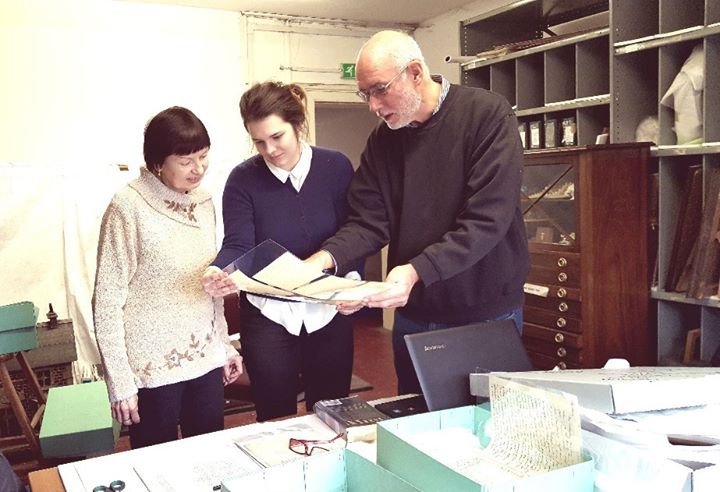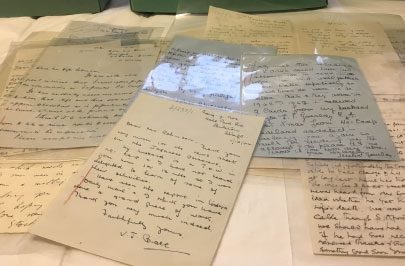Letters that say so much
Erewash Museum is currently undertaking conservation work on the Margaret Hope Robinson letters – an archive of more than 2,000 letters that give an emotional insight into the lives of families of British prisoners of war (POWs) during the Second World War.
In 1944, Margaret Hope Robinson, who was known by her middle name of Hope, was a 29-year-old deputy registrar at Ilkeston Registry Office and was desperate for news of her husband Paul Maltby Robinson, a Major with the Sherwood Foresters, who had been captured by the Japanese forces a few years earlier.
She broke Whitehall regulations to interview two repatriated former POWs and produced a pamphlet about life in in a camp near Bangkok, something which gave vital information to hundreds of anxious relatives.
Letters from the families of missing POWs began to flood into Ilkeston as Hope became a beacon of light for them. The letters show the support network that grew amongst the relatives as well as detailing many personal tragedies and memorable stories.
Hope kept all correspondence and the archive that she left behind was given to Erewash Museum by her daughter Penny last year. The war had a happy ending for Hope, who was eventually reunited with her husband, a prominent local solicitor.
Councillor Mike Wallis, Erewash Borough Council’s Lead Member for Culture and Leisure, says:
“We are extremely grateful to Hope’s family for donating this fascinating archive to Erewash Museum. It is a remarkable story and the letters – from families as well as business letters to newspapers, MPs and other organisations – give an important insight into the day-to-day realities of life on the home front in Britain. They also show the anxieties, frustration, hope and tragedy of the families desperate for news of their missing relatives.”
Anyone wanting more information or interested in volunteering at the museum should email museum@erewash.gov.uk
PHOTO: The documents are being investigated and conserved by museum volunteer Valentina Hartshorn, left, Collections Officer Kate Crossley-Halls and historian Keith Oseman.







